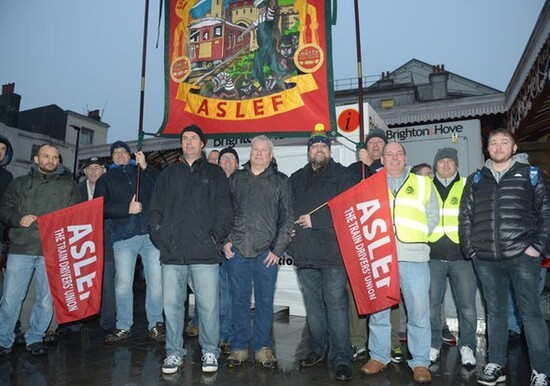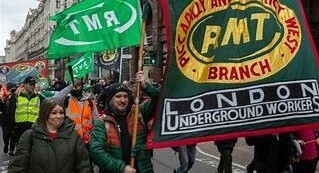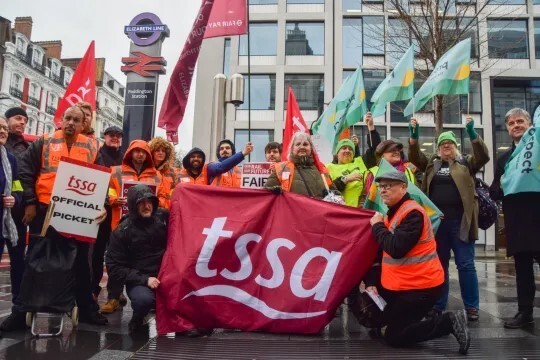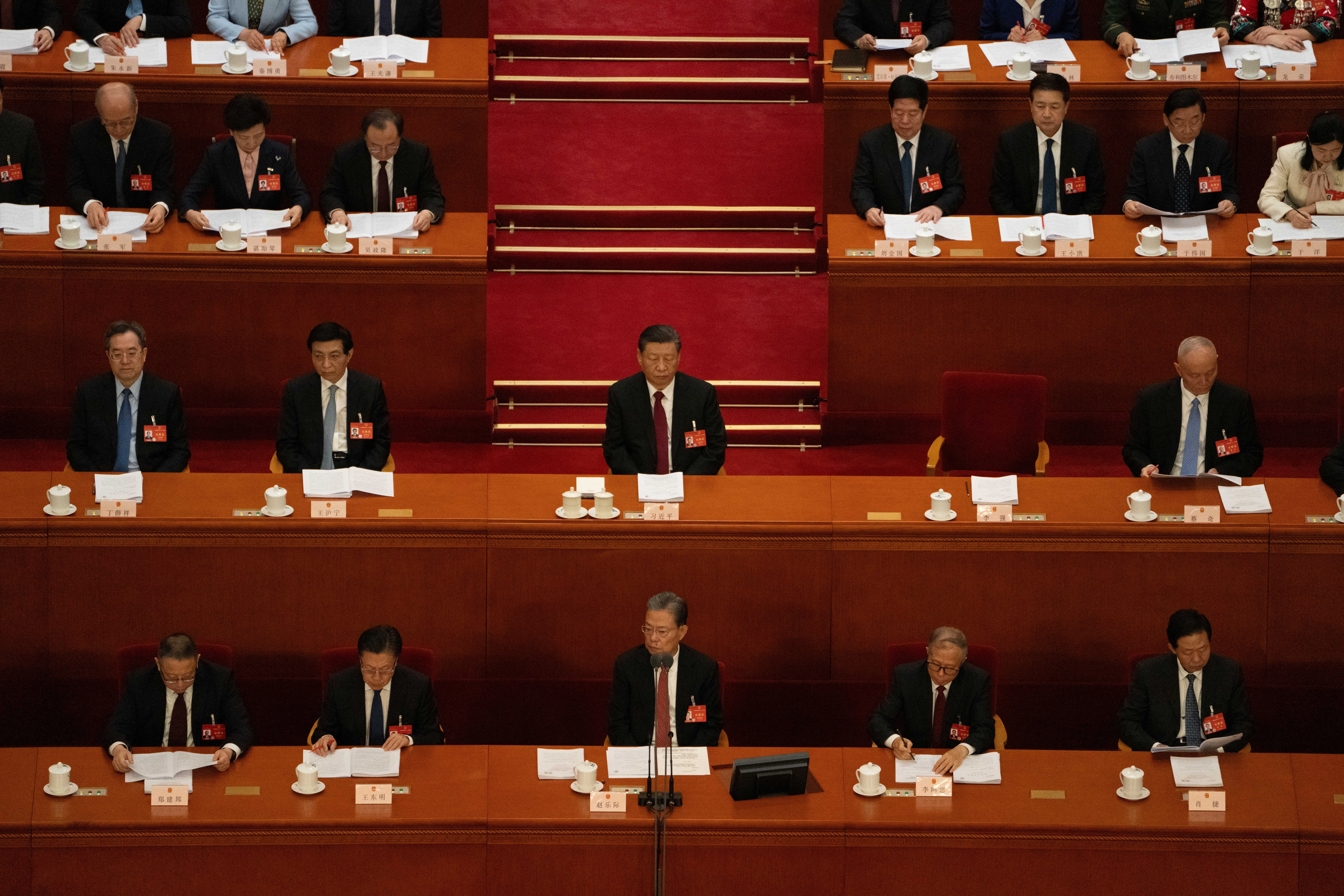We are once again in the midst of a campaign about the railways. Privatisation of train lines has not meant that there has been massive investment in trains; it has not meant that train services run efficiently and reliably on schedule; and it has not meant that costs for passengers have decreased. Essentially, the breakup of British Rail has placed the various parts of the train system under the control of various private franchises with a somewhat checkered history of management and provision of service; several lines have been bought into national control due to poor management and service and the inability to earn sufficient profits to remain under private sector control.
In fact, travel by train is still expensive compared to Europe, and this is especially the case for express trains and those running at times that commuting workers predominately use. Following privatisation, maintenance and replacement of the rails themselves were so poor that they had to be renationalised and Network Rail is now a public company answerable to the government with no stockholders. We can ask the obvious question: how can a coherent public transport system be run to cut down on the use of private cars when it is so expensive to use the rail? Certainly, any attempt to pursue a green transport policy requires a consistent and cheap (preferably free at the point of demand) rail system for passengers.
Privatisation and “Modernisation”
Privatisation changed the nature of work for railway and transport workers; rather than actually being an essential component of a national service, you are instead working for a private company. The concentration on profitability (the raison d’etre of the private market) means that the management of train services has to produce the results needed to meet the profitability criterion; it is not merely the provision of a service; it is a service that is provided to ensure that profit is created.
Interestingly (and this is the case for many privatised former public sectors), this attempt to increase profitability is termed “modernisation.” While many people think of modernisation as relating to the introduction of technology or updating machinery using more recently developed technology. However, this is not always the case in these sectors, and the use of the term modernisation deliberately is trying to portray workers opposing this so-called modernisation as Luddites; in other words, backward and reactionary people who are refusing the use of modern techniques of production and hence are responsible for the fact that these private sectors are not making enough in profits to keep running. The use of the term modernisation is an attempt to hide the failures of privatisation and shift the responsibility onto workers, and it is used by the government, the private sector and of course the MSM (it is the same old nonsense; blaming the workers rather than the capitalist system is a classic sleight of hand).
Now if we think about it, one way to increase profits is by increasing productivity by introducing techniques of production (this does not have to be labour-saving tech, which you would never guess listening to the government and railway franchise operators), but generally the introduction of tech will increase productivity, which can increase profits by decreasing the amount of time it takes to cover the wage bill. You can also attempt to change the conditions of production, either by intensification of labour or extending the working day (this is a tactic that is in place in the freight train industry in the US, where workers do not have working schedules and there are no holidays or sick days). Finally, what an employer in search of higher profits can also do is try to cut the wage bill. This can be done in two ways (and both can happen at the same time): you can try to cut wages themselves and/or you can cut the number of people you employ working on trains.
The rail transport sector is highly unionised. There are 3 unions: Rail, Maritime, and Transport Workers (RMT), The Associated Society of Locomotive Engineers and Firemen (ASLEF), the train drivers union, and The Transport Salaried Staffs Association (TSSA), and these unions are strong and militant, and they have used their power as a key sector to preserve wages, jobs, and conditions of work through the use of strikes and the ability to leverage their power.



The latest wave of strikes in Britain has seen a series of combined strikes and rolling strikes by unions in the sector around working conditions, safety, job losses, and insufficient wage increases given the rising cost of living following the end of the pandemic. Inflation has eroded the value of all wages for workers, and refusal to raise wages consistent with rising costs of living has been one of the driving forces behind the recent strike waves in Britain by public sector workers and unionised private sector wages.
Being a key sector with powerful unions means that rail franchise owners have been looking to find a way to cut the number of workers employed in the rail sector using the excuse of “modernisation.” The railway workers (and their successful use of strikes) have been blamed for any number of things over the years (e.g., deliberately sabotaging sports matches and concerts, economic stagnation, lost working hours, and of course there is the collateral damage to other services offered at train stations (food stores, fast-food restaurants, etc.) and how strikes are creating massive damage to the “economic recovery”—at least they could not blame the pandemic and its impact on them). The COVID pandemic and the resultant loss of business for train operators as the lockdown meant that many workers now worked from home, and hence railway usage had not recovered to pre-COVID levels, so in 2020 the rail franchise system was brought to an end.
Unable to cut wages directly (that is, lower money wages) and with unions protecting workers’ conditions of work, the railway companies and the government have tried several times to reduce the number of workers employed in the sector by not replacing workers who retire or become impaired. Other tactics include several attempts over the years, e.g., Network Rail proposing cutting the number of safety and maintenance workers, cutting the numbers of staff, freezing workers’ pay and job recruitment, cutting the number of station workers, the removal of conductors on the London Overground (rejected due to safety considerations), and on the railway.
Closing the ticketing offices
The current attempt, which is supported by the government, to cut the number of workers is to close the ticket offices at rail stations; it is estimated that nearly 1000 ticket offices will close in England. If they gave this idea more than two minutes of thought, or if they actually gave a damn about their passengers, they would realise that closing ticket offices in train stations will impact four groups of people. The first and most obvious are the workers at the station, who will lose their jobs. The closure of ticket offices will also affect passengers.
Train workers’ unions are clearly opposed to the closure of ticket offices, and there has been a campaign against it. They have been joined by the National Pensioners’ Convention, and disabled people’s organisations, and rights groups. There will be a protest called by the RMT and other trade unions on the evening before the close of the public consultation in London (Thursday, August 31), and it is being built by trade unions and disabled people’s organisations, with support expected from community-based unions.

There has been an ongoing (far too short) consultation where train users can write to the various train companies operating in England to express their displeasure with the closure of train ticket offices. Weirdly, despite many trains coming to and leaving London, there was no space to write in to the various train companies as you had to send your comments to the company that runs the trains that you use, which has been rectified so you can click a link and a nice email is sent to all train companies.
There are two obvious groups of people who may not be comfortable or able to use ticketing machines and need assistance from workers in a train station. The first group is older people who may not have smart phones or are not comfortable using machines and feel more comfortable talking to a human being to assist them in their travels.
“NPC calls for immediate halt to rail operators’ plans
The National Pensioners’ Convention is calling for government and rail operators to urgently scrap plans to close virtually all rail station ticket offices.
The UK’s largest campaign group run for and by older people, says the proposal to shut hundreds of ticket offices discriminates against our oldest and most vulnerable people and breaches their human rights.
Mass closure of rail ticket offices a breach
of older & vulnerable people’s rights
NPC General Secretary said: “We have been afraid that these closures were coming, but the sheer scale of the proposal is not just scandalous, it is heartless.
“The train operators have taken scant notice of pleas by NPC and other concerned groups. The closures will have huge consequences for those who cannot get online to buy a rail ticket because they don’t have, or cannot use a computer or smartphone. It effectively discriminates against them by removing their access to travel, or their ability to get better priced ticket deals.”
The second group is disabled people, whose accessibility and inclusion are under general attack in many policy decisions happening these days. To state the obvious, disabled people may not be able to reach machines, may not be able to use the machines, or may not have the dexterity to operate them and rely on assistance from railway workers to get where they need to go. This was also the problem with removing workers from stations; disabled people often rely on railway workers to get on the train. For example, some stations are not really accessible even though they say they are; much of the “new” Elizabeth line in London now has lifts (elevators), but the train and the platform are of different heights, and you need a ramp to actually get on the train. There are places on the train platform that are accessible, but you may need assistance to get to those places. Finally, train station workers often guide disabled people to the train and platforms if they are visually impaired or don’t know the station well and need assistance in finding the accessible places on the platform. A legal bid has been launched against the closures of train ticket offices by Sarah Leadbetter and Doug Paulley, who have applied for a judicial review based on the short length of the consultation and the fact that the consultation was disabled-inaccessible and hence did not allow disabled people to participate. Transport for All, a disabled people-led rights group fighting for access to transport and street space, has also launched a campaign to fight ticket office closures and got 15 disabled people’s organisations to sign a letter to the Secretary of State, Mark Harper, calling for a halt to ticket office closures.
Our new campaign: #NotJustTheTicket
Rail ticket offices are under threat. Plans to “modernise” the railway have led to widely-reported proposals to close over a thousand ticket offices across the country.
But for the 14.1 million disabled people in the UK, ticket offices play a crucial role in accessing the rail network.
It’s not just about tickets. Staff at ticket offices are the first point of contact for disabled people arriving at stations who require assistance. They provide information, unlock station facilities, and have a profound impact on safety and security.
Disabled People Against Cuts (DPAC) also has an ongoing campaign against closures.
“DPAC is supporting RMT and TSSA in opposing plans by the Government and Train Companies to close nearly one thousand ticket offices across the rail network. We all know that ticket offices and station staffing must be protected in order to maintain passenger service, safety, security and very importantly accessibility for disabled and older people.”
According to research published in The Disability News Service, it is evident that the closures of ticket offices will have a strongly negative impact on disabled people undercutting their accessibility and independence.
Finally, there is an additional group of people who are just tourists or travelling on trains and may need advice and assistance. I don’t know about you, but when I am in a new place where I don’t know the rail system, I always go to ask people working in the ticket office for assistance for the cheapest tickets, how to get to where I want to go and to navigate the confusing (especially if it is a country whose first language is not English) and myriad number of ways to get where I want to go. Eliminating the ticket offices means that people will not have that assistance; it would certainly provide assistance if people spoke more than one language as well. Somehow, the geniuses behind the closures of ticket offices have not even thought about them.
Some final thoughts
To answer the question asked in the title, yes, privatisation and the needs of the market are responsible for so many of the problems we have experienced on railways as workers and commuters. The ideology that says that privatisation ensures efficiency, reliability, quality, and good prices is a fantasy that all of us are paying for. We also need to address the reality of the importance of public transport when we are addressing the environmental crisis, and we must recognise the importance of accessibility for older and disabled people. So, what we need is transport for all, possibly free at the point of demand, so that everyone can use it irrespective of their levels of income. That will never happen if rail is controlled by the private sector. Moreover, we will need rail and public transport to replace private cars if we are going to even begin to address climate change seriously. So, this will require a coherent and sustainable transport policy, and this will not happen if rail and other public transport are not under national control or socialised.
Art (47) Book Review (102) Books (106) Capitalism (64) China (74) Climate Emergency (97) Conservative Government (90) Conservative Party (45) COVID-19 (43) Economics (36) EcoSocialism (48) Elections (75) Europe (44) Fascism (52) Film (47) Film Review (60) France (66) Gaza (52) Imperialism (95) Israel (103) Italy (42) Keir Starmer (49) Labour Party (108) Long Read (38) Marxism (45) Palestine (133) pandemic (78) Protest (137) Russia (322) Solidarity (123) Statement (44) Trade Unionism (132) Ukraine (324) United States of America (120) War (349)






